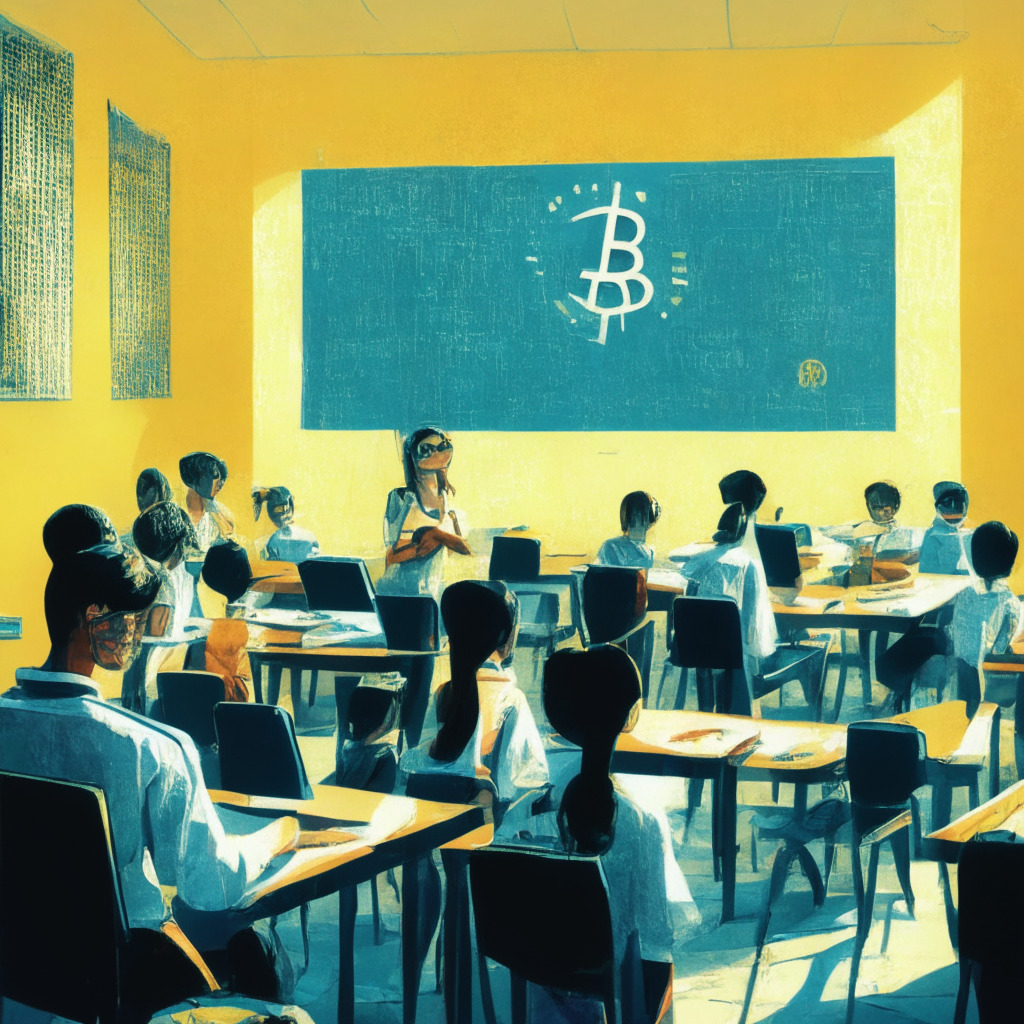In a significant stride for the crypto-education scene, reports indicate that El Salvador’s Ministry of Education is taking steps to introduce a comprehensive Bitcoin educational program in 2024. The initiative follows the country’s move to accept Bitcoin as legal tender two years ago, marking a significant shift in its national economic approach.
The pilot program, in cooperation with El Salvador-based NGO My First Bitcoin and the Bitcoin Beach project, has been instituted with the intent to inform 150 public school teachers on the intricacies of the digital currency. These educators will subsequently transmit their newfound knowledge to students across schools in the country.
My First Bitcoin, beyond its commendable efforts in enlightening over 25,000 students since it started in 2021, has been instrumental in widening the reach of Bitcoin-related learning resources. A recent launch was the 10-week Bitcoin Diploma program, aimed at expanding Bitcoin education nationwide. My First Bitcoin’s materials have played a part in building the Ministry’s curriculum, serving as a primary source for teacher guidance.
While the initiative marks significant potential for Bitcoin literacy in El Salvador, sceptics may argue that the program still represents a narrow focus on a single cryptocurrency. Furthermore, the assumption that understanding Bitcoin translates into understanding the overarching blockchain and crypto landscape may not hold water. An effective educational approach ideally encompasses a broader perspective, covering various aspects of crypto and blockchain technologies.
The Bitcoin Office and Cubo+, two other key players in the educational program’s success, have also been advocates for Bitcoin literacy. The office acts as the official government arm for Bitcoin affairs, while Cubo+ focuses on overlooked aspects of the crypto ecosystem, providing educational resources specifically for Bitcoin and Lightning developers.
Crucially, the Bitcoin Beach project has been the catalyst in the nation’s legal adoption of Bitcoin. Beyond serving as a socio-economic experiment, the project has financially backed the printing of educational resources, and provided training support at a grassroots level.
The fact that other Latin American governments have expressed interest in introducing similar nationwide Bitcoin educational programs indicates the growing global recognition of the importance of crypto literacy. This goes beyond just understanding the mechanics of Bitcoin, but also dissecting the social, economic, and political implications that such a radical shift in the financial system can have on a nation. Nevertheless, it’s important to hold a balanced view of the opportunities and challenges presented by such nationwide initiatives in the crypto space.
Source: Cryptonews




